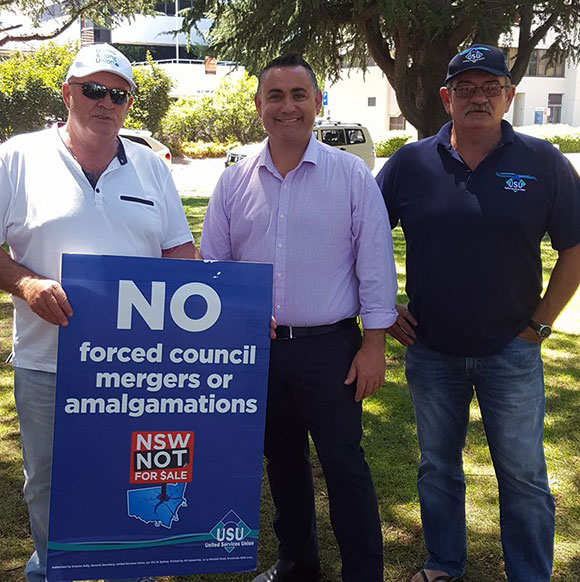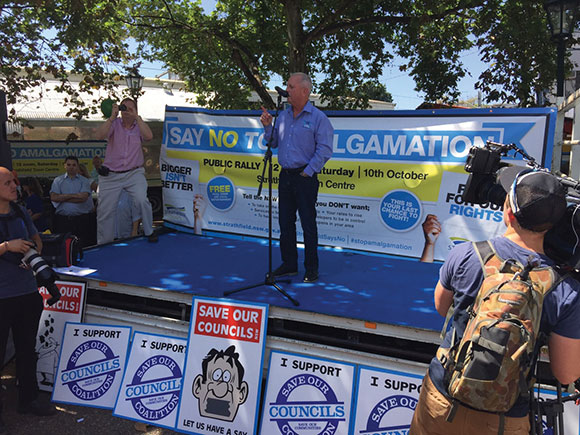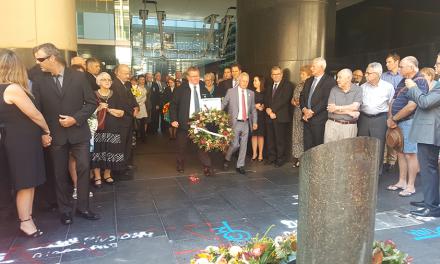The United Services Union, which represents more than thirty thousand local government workers across NSW, has welcomed reports Premier Gladys Berejiklian will overturn Mike Baird’s controversial forced council amalgamation policy, instead giving residents a binding vote on the future of their local government.
With the first meeting of Premier Berejiklian’s newly announced cabinet taking place today, the union urged the Liberal National Government to provide certainty to workers, residents and ratepayers by confirming that plebiscites will occur across any council that has undergone or been identified for forced amalgamation.
USU general secretary Graeme Kelly said new Local Government Minister Gabrielle Upton’s past support for retaining the local nature of local governments was also a welcome change of direction.
“Media reports that Premier Berejiklian is considering overturning the controversial and undemocratic policy of forcibly amalgamating councils against the will of local communities is an extremely welcome development,” Mr Kelly said.
“Our union, like the broader community, has always believed that the future of local government should be determined by local communities.
“Providing binding plebiscites in local government areas that have been forcibly amalgamated, or are in line to be, is a simple way to ensure the wishes of residents and ratepayers are put first.”

National Party leader John Barilaro (centre), who recently committed his party to fighting any further amalgamations, deserved credit for ensuring the issue was at the top of the new Premier’s agenda.
Mr Kelly said National Party leader John Barilaro, who recently committed his party to fighting any further amalgamations, deserved credit for ensuring the issue was at the top of the new Premier’s agenda.
“For more than a year, communities across the state have fought back against these radical changes that have simply been imposed on them,” he said.
“While it took an overwhelming electoral backlash in Orange to bring about a shift, it is extremely encouraging that the NSW Government is now seriously listening to the will of the people.
“Reforms to local government should never occur in a heavy-handed manner, instead they should take place in a transparent way that involves genuine consultation with workers, ratepayers and residents.
“Allowing open community debate, followed by a binding plebiscite, is a far more democratic way to determine the future of local government and ensure the continued provision of quality, responsive, locally-tailored services that operate purely in the public interest.




